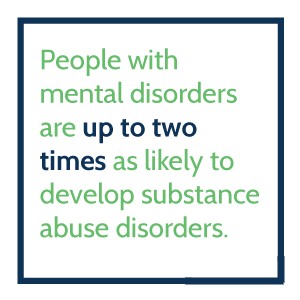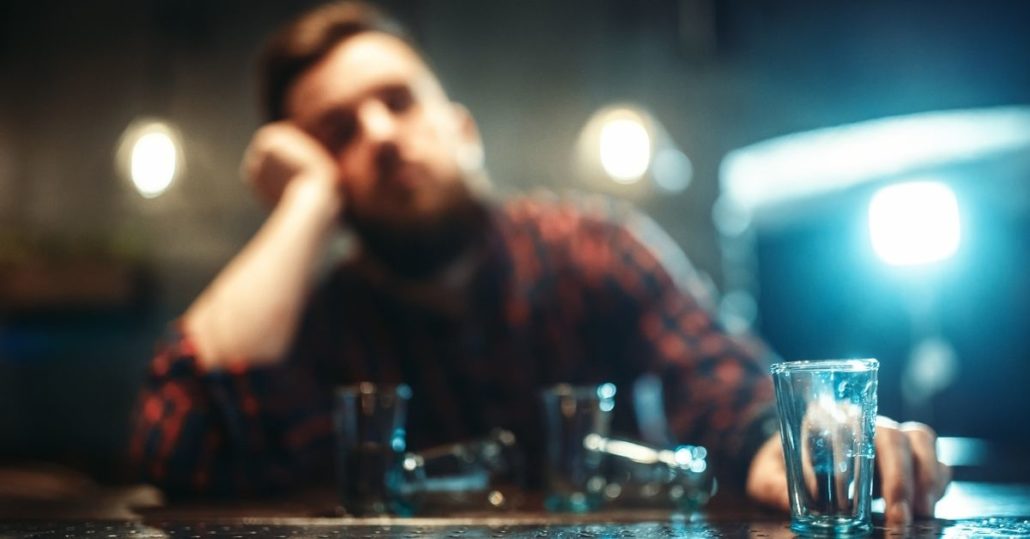What is OCD?
Distress from OCD always causes you to stay away from friends and family. OCD can also make building new relationships difficult. Both situations can lead to depression and self-medicating with other drugs and alcohol. This leads to repeated substance abuse whenever unwanted thoughts or urges arise. With enough time and abuse, a drug or alcohol addiction can take its form. It is extremely helpful for your daily life once you start getting a proper OCD treatment [1].

Get Your Life Back
Find Hope & Recovery. Get Safe Comfortable Detox, Addiction Rehab & Mental Health Dual Diagnosis High-Quality Care at the We Level Up Treatment Centers Network.
Hotline (877) 378-4154Signs and Symptoms of OCD
People with OCD may have symptoms of obsessions, compulsions, or both. These symptoms can interfere with all aspects of life, such as work, school, and personal relationships.
Obsessions are repeated thoughts, urges, or mental images that cause anxiety. Common symptoms include:
- Fear of germs or contamination
- Unwanted forbidden or taboo thoughts involving sex, religion, or harm
- Aggressive thoughts towards others or self
- Having things symmetrical or in a perfect order

Compulsions are repetitive behaviors that a person with OCD feels the urge to do in response to an obsessive thought. Common compulsions include:
- Excessive cleaning and/or handwashing
- Ordering and arranging things in a particular, precise way
- Repeatedly checking on things, such as repeatedly checking to see if the door is locked or that the oven is off
- Compulsive counting
Not all rituals or habits are compulsions. Everyone double checks things sometimes. But a person with OCD generally:
- Can’t control his or her thoughts or behaviors, even when those thoughts or behaviors are recognized as excessive
- Spends at least 1 hour a day on these thoughts or behaviors
- Doesn’t get pleasure when performing the behaviors or rituals, but may feel brief relief from the anxiety the thoughts cause
- Experiences significant problems in their daily life due to these thoughts or behaviors

Some individuals with OCD also have a tic disorder. Motor tics are sudden, brief, repetitive movements, such as eye blinking and other eye movements, facial grimacing, shoulder shrugging, and head or shoulder jerking. Common vocal tics include repetitive throat-clearing, sniffing, or grunting sounds [2].
Symptoms may come and go, ease over time, or worsen. People with OCD may try to help themselves by avoiding situations that trigger their obsessions, or they may use alcohol or drugs to calm themselves. Although most adults with OCD recognize that what they are doing doesn’t make sense, some adults and most children may not realize that their behavior is out of the ordinary.
If you think you have OCD, talk to your doctor about your symptoms. If left untreated, OCD treatment is vital because OCD can interfere in all aspects of life.
Get Help. Get Better. Get Your Life Back.
Searching for Accredited Drug & Alcohol Rehab Centers Near You? Or Mental Health Support?
Even if you have failed previously, relapsed, or are in a difficult crisis, we stand ready to support you. Our trusted behavioral health specialists will not give up on you. Call us when you feel ready or want someone to speak to about therapy alternatives to change your life. Even if we cannot assist you, we will lead you wherever you can get support. There is no obligation. Call our hotline today.
FREE Addiction Hotline – Call 24/7Types of OCD
There really aren’t any types of OCD, technically speaking. However, there are common symptom categories that can be described as “types.” These are based on similarities in the content of the obsessive thoughts and the actions a person takes to cope with them. Someone with OCD could potentially have any type of obsessive thoughts or any compulsive behavior, but these categories are seen most often:
- Aggressive or sexual thoughts. A common type of obsession is related to a fear of causing harm to others, of lashing out violently, or having violent, aggressive images that won’t go away. These kinds of thoughts may also be sexual, such as fearing behaving in a sexually inappropriate way or experiencing recurring, troubling sexual imagery. These types of obsessions are often coupled with seeking reassurance of one’s goodness, but there may be other accompanying compulsions.
- Harm to loved ones. For some people, the fear is not necessarily that they will harm someone but that some type of harm will come to their loved ones. For instance, someone may obsess over the thought that their child will get hurt in a car accident. Compulsive behaviors could be anything but are often used to prevent the harm from occurring.
- Germs and contamination. A fear of germs and a need to wash hands compulsively is often what people associate with OCD, and it is a common feature. Many people diagnosed with OCD are afraid of germs or other types of contamination and may avoid situations and activities because of this fear. Compulsive hand-washing and cleaning are also typical.
- Doubt and incompleteness. OCD can cause recurring thoughts that a person hasn’t done something correctly or completely. An example might be someone who doubts they have locked the door when leaving the house. This type of obsessive thought usually triggers compulsive checking behaviors, like going back to the door multiple times to be sure it is locked.
- Sin, religion, and morality. Some people worry obsessively about being immoral or sinning. They may use prayer compulsively or ask for forgiveness over and over again.
- Order and symmetry. Having objects ordered “just so” is a fairly common type of obsession with OCD. People with these thoughts spend an inordinate amount of time arranging and ordering objects or visualizing symmetry. They may also have specific superstitions about numbers, patterns, and symmetry.
- Self-control. A fear of losing control and doing something inappropriate characterizes many individual experiences with OCD. Some people may worry about shouting something in public, while others may be worried about harming someone, which ties into the aggressive or sexual type of obsessions. Any type of compulsive behavior may follow, but this kind of obsession can also lead to isolation, as a person may avoid being around others.
These types of OCD are really just groupings of some of the most common symptoms. Someone with OCD may have any type of obsessive thought. Some other examples include fears about specific relationships, beliefs in magic and magical thinking, or obsessions about one’s own body, such as breathing patterns or blinking.
What causes OCD?
There are different theories about why OCD develops. However, none of these theories can explain every person’s experience. But researchers suggest that the following are likely to be involved in causing OCD:
- Family history – You’re more likely to develop OCD if a family member has it. Possibly because of your genes.
- Differences in the brain – Some people with OCD have areas of unusually high activity in their brain or low levels of a chemical such as serotonin.
- Life events – OCD may be more common in people who have been bullied, abused or neglected. In this case, it sometimes starts after an important life event, such as childbirth or a bereavement
- Personality – Neat, meticulous, methodical people with high personal standards may be more likely to develop OCD. Also, people who are generally quite anxious.
How is OCD diagnosed?
Steps to help diagnose obsessive-compulsive disorder may include:
- Psychological evaluation. This includes discussing your thoughts, feelings, symptoms and behavior patterns to determine if you have obsessions or compulsive behaviors that interfere with your quality of life. With your permission, this may include talking to your family or friends [3].
- Diagnostic criteria for OCD. Your doctor may use criteria in the Diagnostic and Statistical Manual of Mental Disorders (DSM-5), published by the American Psychiatric Association.
- Physical exam. This may be done to help rule out other problems that could be causing your symptoms and to check for any related complications.
Diagnostic Challenges
It’s sometimes difficult to diagnose OCD because symptoms can be similar to those of obsessive-compulsive personality disorder, anxiety disorders, depression, schizophrenia or other mental health disorders. And it’s possible to have both OCD and another mental health disorder. Work with your doctor so that you can get the appropriate diagnosis and treatment.
OCD Inpatient Treatment
OCD Inpatient treatment programs are for people who may be in danger of harming themselves or others and need immediate care. Admission to the hospital for a select period of time helps keep the person safe, addresses the crisis, and gets the patient on the right track and on to the next step of treatment. In this phase of treatment, actively addressing the OCD symptoms is not generally attempted.

First-class Facilities & Amenities
World-class High-Quality Addiction & Mental Health Rehabilitation Treatment
Rehab Centers TourRenowned Addiction Centers. Serene Private Facilities. Inpatient rehab programs vary.
Addiction Helpline (877) 378-4154Proven recovery success experience, backed by a Team w/ History of:
15+
Years of Unified Experience
100s
5-Star Reviews Across Our Centers
10K
Recovery Success Stories Across Our Network
- Low Patient to Therapist Ratio
- Onsite Medical Detox Center
- Comprehensive Dual-Diagnosis Treatment
- Complimentary Family & Alumni Programs
- Coaching, Recovery & Personal Development Events
Exposure Therapy or Exposure with Response Prevention (ERP)
Exposure is a procedure in which you purposely confront objects or situations that prompt distress. You stay in those situations long enough for your anxiety to decrease by itself. It is a form of behavioral therapy that involves gradually confronting a feared situation while resisting compulsions. Compulsions are behavioral responses aimed at getting certainty about an obsession and relief from distress associated with the obsession.
An obsession, such as “I might be contaminated,” could be responded to with a compulsion like excessive hand washing. ERP for this obsession would involve voluntarily engaging in planned behaviors that make the sufferer feel contaminated, such as touching a public surface (exposure), while resisting the urge to wash, avoid, or do other rituals (response prevention). Over time, two things occur:
- The compulsive hand washer in this example begins to habituate to the discomfort (meaning, the pain associated with feeling contaminated diminishes), and
- The brain learns to separate the feeling of contamination from the demand to wash or do other compulsions (a process called inhibitory learning).
Imaginal Exposure
For many people struggling with OCD and related anxiety disorders, one of the most beneficial treatment tools is imaginal exposure. In order to best understand this technique, it is first necessary to understand the basic idea of Exposure and Response Prevention (ERP).
One key reason for using imaginal exposure is that it allows the client to be effectively exposed to obsessional thoughts for which there may not be any outwardly observable compulsions. There are three additional reasons for which imaginal exposures may sometimes be the best approach to exposure:
- Standard behavioral exposures cannot always be easily created for some thoughts. For example, if someone with Existential OCD fears non-existence, it is virtually impossible to create a behavioral exposure that actually replicates not existing.
- Some thoughts cannot be acted on for legal or ethical reasons. We cannot assign someone to kill someone or to molest a child. But we can assign them to write a story about those things.
- For some people, certain thoughts provoke too much anxiety to face with standard behavioral exposures. Some clients are so overwhelmed with anxiety about a particular event, situation or thing that writing a short story about what they fear may be a good intermediate step that helps them to eventually face that fear more directly.
Regardless of the reason, if and when the client feels ready to write and use imaginal exposures, this technique can have a profound impact on their OCD.
Cognitive Behavior Therapy
Psychotherapy can be an effective treatment for adults and children with OCD. Research shows that certain types of psychotherapy, including cognitive behavior therapy (CBT) and other related therapies (e.g., habit reversal training) can be as effective as medication for many individuals.
Research also shows that a type of CBT called Exposure and Response Prevention (EX/RP) – spending time in the very situation that triggers compulsions (e.g. touching dirty objects) but then being prevented from undertaking the usual resulting compulsion (e.g. handwashing) – is effective in reducing compulsive behaviors in OCD, even in people who did not respond well to SRI medication.
Psychotherapy can be an effective treatment for adults and children with OCD. As with most mental disorders, treatment is usually personalized and might begin with either medication or psychotherapy, or with a combination of both. For many patients, EX/RP is the add-on treatment of choice when SRIs or SSRIs medication does not effectively treat OCD symptoms or vice versa for individuals who begin treatment with psychotherapy.
OCD Medication
Medicines – usually a type of antidepressant medicine that can help by altering the balance of chemicals in your brain. You may need medicine if psychological therapy does not help treat your OCD, or if your OCD is severe. The main medicines prescribed are a type of antidepressant called selective serotonin reuptake inhibitors (SSRIs). An SSRI can help improve OCD symptoms by increasing the levels of a chemical called serotonin in your brain. You may need to take an SSRI for 12 weeks before you notice any benefits
World-class, Accredited, 5-Star Reviewed, Effective Addiction & Mental Health Programs. Complete Behavioral Health Inpatient Rehab, Detox plus Co-occuring Disorders Therapy.
CALL (877) 378-4154End the Addiction Pain. End the Emotional Rollercoaster. Get Your Life Back. Start Drug, Alcohol & Dual Diagnosis Mental Health Treatment Now. Get Free No-obligation Guidance by Substance Abuse Specialists Who Understand Addiction & Mental Health Recovery & Know How to Help.
Addiction and OCD Treatment
According to the National Institute of Mental Health, OCD symptoms may come and go, ease over time, or worsen. [4] You may try to help yourself by avoiding situations that trigger your obsessions, or you may use alcohol or drugs to calm yourself. That is why a person with OCD is far more likely to develop a chemical dependency or addiction due to alcohol or drug usage. Like depression and many anxiety disorders, alcohol and drug addiction often co-occur with OCD. This pairing can cause serious physical and mental damage. In these dual diagnosis situations of drug addiction and obsessive-compulsive disorder, it is crucial to get the right treatment for both disorders.
OCD, Social Isolation, and Addiction
Social isolation caused by OCD can also lead to substance abuse and alcohol addiction. Those who are suffering from OCD understand that their obsessions and compulsions do not make logical sense. Moreover, OCD sufferers — and addicts — often feel shame for thinking and acting the way they do.
Just like drug addiction, OCD can leave people feeling isolated from the outside world. Someone suffering from OCD might avoid important people and social settings to privately keep their obsessions and compulsions. This shame, loneliness, and physical isolation easily lead to addiction or substance abuse.
Primary substance Abuse and Secondary Co-occuring OCD Treatment
In fact, our dual diagnosis treatment center is one of the top facilities that employ the proper professionals trained to help treat these very co-occurring disorders concurrently. This type of tandem treatment including OCD treatment provides some of the best success rates for individuals struggling with this comorbidity.

Call today to speak with one of our treatment specialists. At the We Level Up NJ treatment center, we provide world-class care with round-the-clock medical professionals available to help you cope. All working as a team providing primary SUD treatment along with primary substance abuse and co-occurring secondary OCD treatment for successful recovery. Make this your opportunity to reclaim your life. Call today to speak with one of our treatment specialists. Our counselors know what you are going through and will answer any of your questions. Your call is private and confidential and there is never any obligation.
Experience Transformative Recovery at the We Level Up Treatment Center.
See our authentic success stories. Get inspired. Get the help you deserve.



Start a New Life
Begin with a free call to an addiction & behavioral health treatment advisor. Learn more about our dual-diagnosis programs. The We Level Up treatment center network delivers various recovery programs at each treatment facility. Call to learn more.
- Personalized Care
- Caring Accountable Staff
- World-class Amenities
- Licensed & Accredited
- Renowned w/ 5-Star Reviews
We’ll Call You
Sources:
[1] [4] National Institute of Mental Health – https://www.nimh.nih.gov/health/topics/obsessive-compulsive-disorder-ocd/
[2] NCBI – https://www.ncbi.nlm.nih.gov/books/NBK553162/#:~:text=The%20mainstay%20of%20obsessive%2Dcompulsive,and%20response%20prevention%20(ERP).&text=ERP%20involves%20exposing%20the%20patient,urge%20to%20perform%20a%20compulsion.
[3] NCBI – https://www.ncbi.nlm.nih.gov/pmc/articles/PMC7370844/
